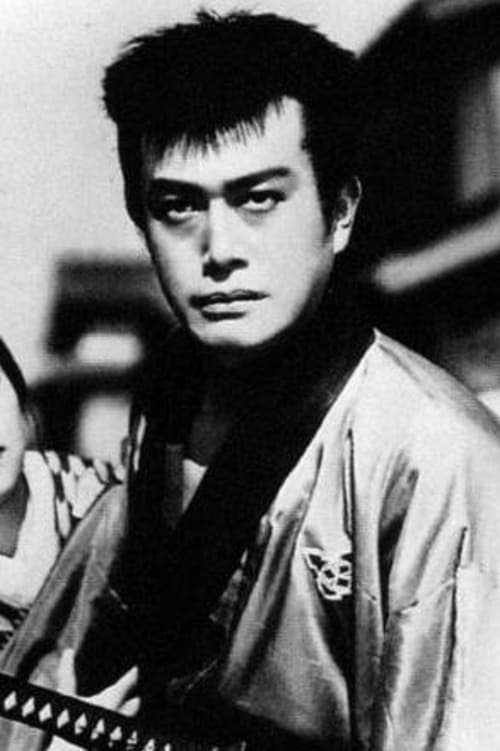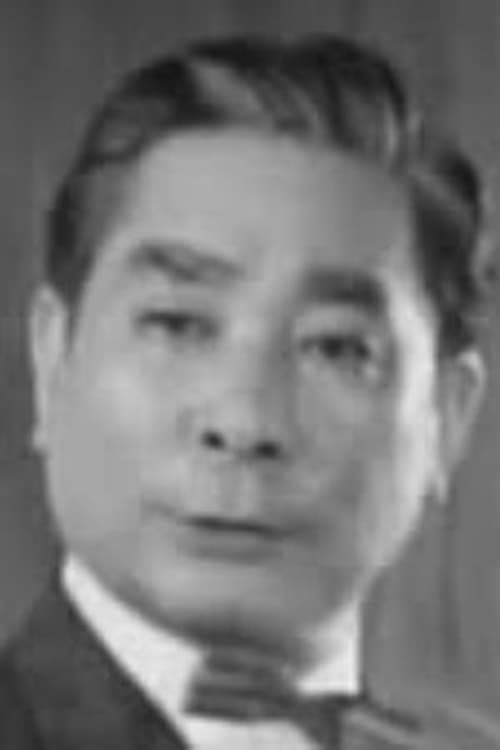Tsukigata Hanpeita (1952)
Gênero : Drama, História
Runtime : 1H 42M
Director : Kokichi Uchide
Escritor : Hyōgo Suzuki, Isamu Nagae
Sinopse
During the ultra-violent era of the downfall of the Tokugawa Shogunate one man rose above the rest with his ideas of how to overthrow the corrupt government and end the bloodshed between the Choshu and Satsuma clans which would ultimately lead to the alliance of these 2 clans and restoration of the emperor to full power. Based on the play that made Sawada Shojiro famous, this is the story of Tsukigata Hanpeita, a forward looking samurai from Choshu, who along with Katsura Kogoro and Sakamoto Ryoma of Tosa worked to bring their dream of a new era in Japan.
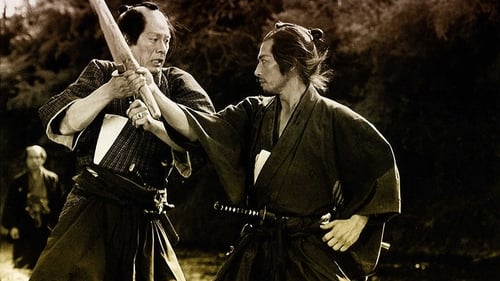
Seibei Iguchi é um samurai de 2º escalão que presta serviços ao clã Unasaka. Sua esposa morreu de tuberculose e suas duas filhas, Kayana e Ito, dependem dele para sobreviver. O divórcio de Tomoe, seu amor de infância, faz com que entre em confronto com seu ex-marido, um samurai de grande reputação. Após vencer o duelo empunhando apenas uma espada de madeira, Seibei ganha respeito e é convocado a eliminar um poderoso inimigo.

During the reign of 5th Shogun Tokugawa Tsuneyoshi a troupe of Chinese acrobats travel to Japan to help celebrate the building of the Yushima Shrine. At the same time a series of mysterious assassinations take place with a strange and unknown weapon. Master swordsman Saotome Mondonosuke, a 'Hatamoto' (direct retainer of the Shogun) and a man who loves action takes it upon himself to get to the bottom of the mystery and and solve the puzzling crimes.

A Hibari Misora musical.
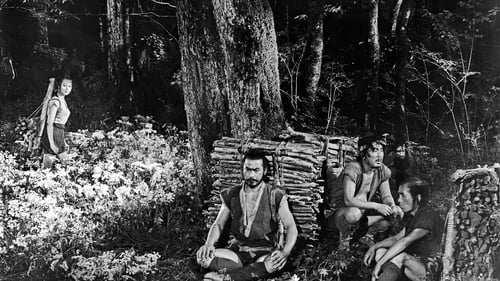
Ambientado no século dezesseis no Japão, um solitário samurai escolta uma jovem princesa fugitiva através do território inimigo.
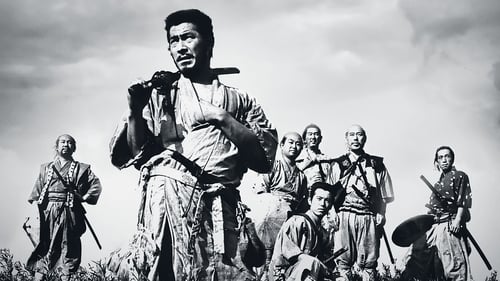
No século XVI, durante a era Sengoku, quando os poderosos samurais de outrora estavam com os dias contados, pois eram agora desprezados pelos seus aristocráticos senhores. Kambei (Takashi Shimura), um guerreiro veterano sem dinheiro, chega em uma aldeia indefesa que foi saqueada repetidamente por ladrões assassinos. Os moradores do vilarejo pedem sua ajuda, fazendo com que Kambei recrute seis outros ronins (samurais sem mestre), que concordam em ensinar os habitantes como devem se defender em troca de comida. Os aldeões dão boas-vindas aos guerreiros e algumas relações começam. Katsushiro (Ko Kimura) se apaixona por uma das mulheres locais, embora os outros ronins mantenham distância dos camponeses. O último dos guerreiros que chega é Kikuchio (Toshiro Mifune), que finge estar qualificado mas na realidade é o filho de um camponês que almeja aceitação.
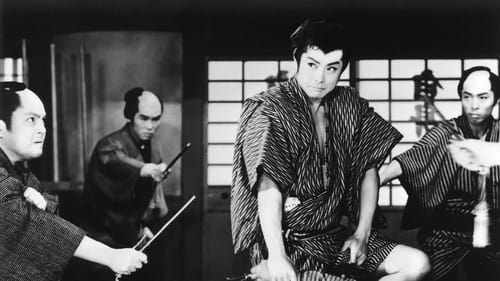
Young Lord Taihei goes to Edo to find the lost family treasure, a plover incense burner, under the disguise of a ronin.

Based on the real-life Honno-ji Incident, in which famed warlord Oda Nobunaga was assassinated at a temple in Kyoto in 1582.
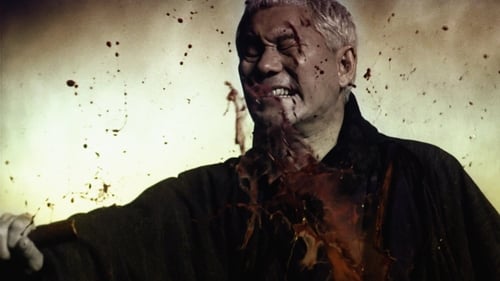
Japão, século 19. Zatoichi (Takeshi Kitano) é um andarilho cego que sobrevive como massagista e jogador de cartas, mas por trás de sua aparência humilde esconde-se um espadachim de raro talento. Numa de suas andanças ele chega a uma aldeia dominada pelo sanguinário bandoleiro Ginzo (Ittoku Kishibe), que, com a ajuda do samurai Hattori (Tadanobu Assano), seu capanga, elimina quem se oponha a seus objetivos. O embate entre Zatoichi e a quadrilha de Ginzo torna-se inevitável quando o cego conhece duas gueixas que desejam vingar a morte dos pais.

Brings Shingo face to face against Yagyu Tajima, the Shogun’s fencing instructor in a match that could save a domain near Osaka. Meanwhile Shogun Yoshimune must face a painful decision whether or not he can finally see his son for the first time.

Chronichles the story of the Forty-seven Ronin.
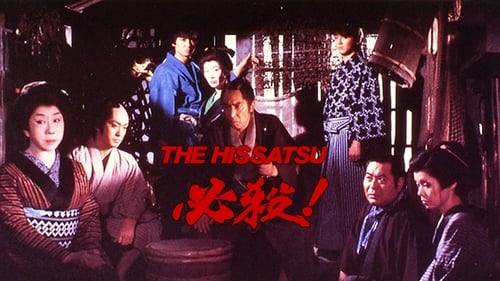
A group of seemingly ordinary merchants is really a band of assassins for hire. When they discover that all the assassins in Edo are being killed they must act quickly to find the culprit.

Heizo "The Demon" investigates the shop of Toshimaya the swordsmith, where 280 ryo was stolen and twelve people murdered. This particular group of theives are most dangerous because of the willingness to kill for money, but what about this mysterious unibrow, who is he? What is he up to?
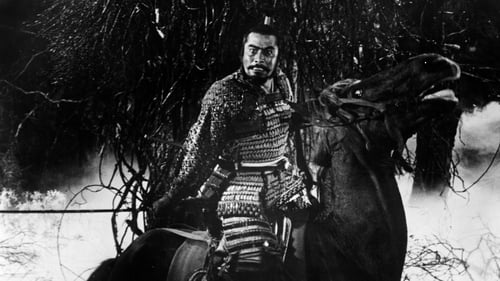
Japão, século XVI. As guerras civis sacodem o país. Dois valentes samurais, os generais Washizu Taketori (Toshirō Mifune) e Miki (Minoru Chiaki), regressam aos seus domínios depois de uma batalha vitoriosa. No caminho, uma misteriosa senhora profetizao futuro de Washizu: o guerreiro se converterá no Senhor do Castelo do Norte. A partir deste fato Washizu, auxiliado por sua esposa Asaji Isuzu Yamada, se vê imerso numa trágica e sangrenta luta pelo poder.
Trono Manchado de Sangue (蜘蛛巣城, Kumonosu-jō?, literalmente "Castelo Teia de Aranha") é um filme japonês de 1957 dirigido por Akira Kurosawa, que transpôs a obra Macbeth de William Shakespeare para o Período Sengoku japonês (séc. XV - XVI).

No Japão do século 19 , em um hospital de caridade o Dr. Niide (Toshiro Mifune), um médico duro mas honrado, conduz um jovem estagiário sob sua orientação ao longo de inúmeros casos difíceis.
Ambientado em tempos feudais, médico novato, Yuzo Kayama, é enviado para uma enfermaria pobre esperando ser apenas passageiro, mas está furioso ao saber que ele deve ficar. Ele tenta provocar sua dispensa, mas é frustrado pelo médico-chefe "Barba Vermelha" (Toshiro Mifune), um homem cujos métodos são tão carinhosos quanto imprevisíveis.

Shipwrecked African-American slaves arrive in the midst of Bakumatsu-era Japan; they soon carve out a niche in the market with their musical talents.

When master swordsman Mikogami Genshiro of the Ono fencing school returns to find that his ailing sensei has been murdered in the dead of night, he must find the culprit and exact revenge. His return sets off a series of violent incidents and incites a high ranked female skilled in sword to test his mettle after he unwittingly offends her. The ever delightful Misora Hibari co-stars with the great Tsuruta Koji in this exciting tale set in the earliest days of the Tokugawa shogunate. Lots of exciting swordfights highlight this entertaining motion picture!






